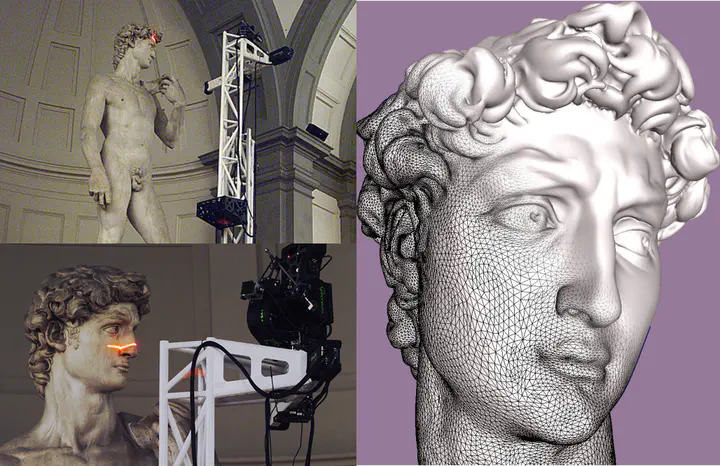 Michalangelo’s David
Michalangelo’s DavidAbstract
3D graphics are evolving media type used in all aspects of technological areas of today. Increase in demand on 3D graphics pushes technological advancements on 3D scan technology and approximation methods to next level which then results in more complex and highly detailed large 3D raw data. Thus, it is crucial to compress these graphics data efficiently. Over the last two decades, many algorithms have been proposed to compress these raw 3D data especially for compact storage, fast transmission, and efficient processing. Compression methods are branching among themselves. In this paper, 3D compression methods are summarized in a taxonomical fashion. A special attention is paid to the main ideas behind the single-rate compression algorithms and their contribution to 3D mesh compression technology. The advantages and the drawbacks of each algorithm are discussed to pave the road for the future 3D compression researchers.